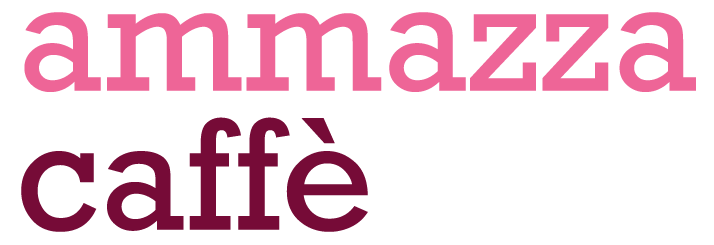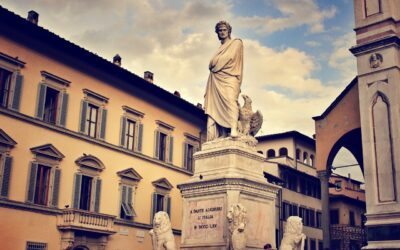Con la recente uscita nei cinema italiani di “Bohemian Rhapsody”, è difficile meravigliarsi della ritrovata voglia del pubblico di cimentarsi nell’apprendimento di uno strumento musicale; ma tra tutto il chiasso della calca di principianti che si accingono a intraprendere il lungo e tortuoso cammino della musica, in pochi si interrogano circa la sua vera natura e sostanza.
Laddove è facile notare e comprendere l’attraente estetica di impugnare una chitarra elettrica o l’elegante curva che il pianista intento a suonare il suo strumento forma con il legno nero, è semplicemente sbagliato pensare che l’importanza e la profondità della seconda arte siano così banali.
Pensare che siano le curve, le linee, i colori dello strumento a farne ciò che è deriva – perlomeno parzialmente – da una superficiale comprensione e povera intuizione della funzione dello stesso. Rendere lo strumento artefice della sua necessarietà è il primo errore che commettiamo tutti al momento di iniziare a suonare qualcosa, ma anche ciò che ci spinge a rifiutare con ardore il nozionismo che ci viene instillato riguardo la musica fin da quando siamo bambini. Dopo tutto, però, è questo stesso errore a darci la forza di sperimentare con ammirabile – e talvolta fastidiosa – costanza e dedizione, propria di colui (o colei) che può veramente dirsi vivere per la musica.
La lezione più grande che si può imparare dalla musica (così come anche dalle altre forme di arte) è quanto sia giusto rompere gli schemi – sociali e armonici -, ribellarsi, esprimere sé stessi nella maniera più cruda e forte possibile, il bene, il male, il vuoto, la grande felicità delle piccole cose e la piccola felicità delle grandi cose, la rabbia e, soprattutto, il dolore. La musica è così non solo mezzo per esternare il più intimo sé, per descrivere spazi e tempi che le lingue non possono sondare, colori che gli occhi non possono vedere, idee che la mente non può conoscere, ma spesso e volentieri straborda nel regno del catartico.
Ma anche tutto questo non è che un dettaglio di un quadro ancora non finito: ciò che più ha portato la musica in primo piano rispetto alle altre arti, che più l’ha resa accessibile al pubblico medio e che più l’ha popolarizzata in maniera trasversale presso tutte le classi sociali di tutto il mondo è il fatto che sia comprensibile a tutti, anche a coloro che non hanno mai avuto una formazione musicale o non hanno mai visto nemmeno uno spartito. La musica si presenta per propria natura come entità egualitaria, volta alla liberazione di tutti gli oppressi, all’abbattimento di tutte quelle barriere culturali e sociali che impediscono l’empatia tra popoli e persone.
La musica non è solo sensazione, ma anche lingua.
A tutti coloro che anche solamente pensano di impugnare un violino una volta nella loro vita, ma soprattutto a coloro che si celano al mondo sotto le spoglie dei loro abiti quotidiani nella paziente attesa di poter finalmente crogiolarsi nella volubile fermezza della musica, porgo il mio orecchio, ma, ancor di più, il mio cuore per il vostro coraggio altruistico, e per essere voi stessi ispirazione dei servi e degli oppressi, perché talvolta una sola nota conta più di mille parole.
Music: the universal language
With the recent release of “Bohemian Rhapsody” in the cinemas of the world, it is difficult to be surprised by the new-found desire for people to learn a musical instrument; but in all the noise this crowd of beginners about to undertake the long and tortuous path of music is making, few people ponder its true nature and substance.
Whereas it’s easy to notice and comprehend the riveting aesthetic of holding an electric guitar or the elegant shape the pianist forms with their instrument, it would be simply wrong to think that the importance of music would be abismal.
To think it’s the curves, the lines, the colors of the instrument to make of it what it is, derives – at least partially – from a superficial understanding and poor intuition of its function.
Making the instrument the master of its necessity is the first mistake that we all commit when picking up something, but also what drives us to reject ardently the notionism about music that is instilled in us from when we’re children and, finally, that which becomes the driving force of the admirable – and often annoying – constancy and dedication of the one who can really be said to live for music.
The greatest lesson music can teach (as well as other forms of art) is the righteousness of breaking the – social and harmonic – patterns, of rebelling, of expressing oneself in the most raw and powerful way possible: good, evil, emptiness, the great happiness of little things and the small happiness of great things, anger and, above all, pain.
Music is thus not only a means to externalize the most intimate part of oneself, to describe spaces and times languages cannot fathom, colors the eyes cannot see, ideas the mind cannot know, but often reaches into cathartic.
However, all this is but a detail of an unfinished picture: what has brought music to the mainstream, what made it more accessible to the general public, and that most has popularized it to all social classes around the world is the fact that it is understandable to everyone, even those who have never had any musical education or have never even seen score. Music presents itself as egalitarian entity, freedom for all who are oppressed, demolition to all those cultural and social barricades that thwart empathy between peoples and people.
Music is not just sensation, but also a language.
To all those who consider holding a violin even just once in their life, but above all to those who conceal themselves from the world under the guise of their daily clothes in a patient wait to finally bask in the fickle firmness of music, I owe my ear, but my heart even moreso, for your altruistic courage, and for you yourselves being inspiration to the enslaved and the oppressed, because sometimes one only note matters more than a thousand words.
Luca Martin









0 commenti